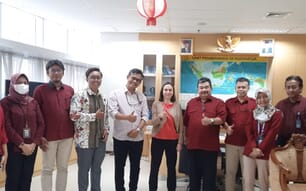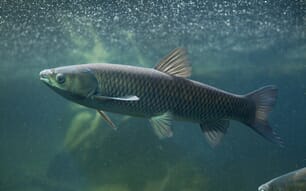Similar to the certification programme set up by the Marine Stewardship Council for sea fishing operations, the World Wildlife Fund scheme will be working with independent, third parties to certify farms that are in compliance with the standards for responsible aquaculture.
* "The standards will be quantitative performance levels farmers must reach." |
|
WWF
|
It was launched at the recent European Seafood Exhibition in Brussels.
“With minor exceptions, the standards will be quantitative performance levels farmers must reach to become certified,” said a WWF spokesman.
Certification for More Sustainable Aquaculture
The concerns arise because, while there are existing certification schemes around the world, most of the systems and the certification processes do not make aquaculture more sustainable.
The WWF believes that the Aquaculture Stewardship Council will be the most credible entity for environmental and social standards because the standards will be measurable, based on sound science and created by a broad and diverse body as well as being fully transparent.
In all, more than 2,000 aquaculture producers, conservationists, scientists and other bodies are involved in the process.
The first sets of standards for tilapia and pangasius were expected to be completed later this year and the others will be finished next year.
“If we want to see change on the water, we need to back this hard work with a credible independent entity that makes it easy for producers, who are in compliance with the standards to become certified,” the WWF added.
The WWF is now expected to hire someone this spring to help set up and work with the advisory committee to finalise the Aquaculture Stewardship Council’s business plan as well as develop an administrative structure for the council and find fund for the council.
The WWF says it will be drawing on the lessons that have been learned by the Marine Stewardship Council in establishing its certification scheme and business.
Complete Transparency in Certification
However, the WWF said that it wants to see a completely transparent scheme.
It expects that those in the Aquaculture Dialogues will play an active role in the Aquaculture Stewardship Council, providing input during the development stage as well as when it is up and running.
The WWF also hopes to see members of the Aquaculture Dialogues providing financial support and taking part in the technical working groups.
The new council is expected to be funded by the WWF and the Dutch Sustainable Trade Initiative (IDH) for the person who is hired to help created the ASC and the two will also be major contributors to funds once the scheme is up and running.
The scheme will be represented under the logo of the Aquaculture Stewardship Council and information about the progress of the scheme will be posted on the WWF website under http://www.worldwildlife.org/aquadialogues.
The WWF said that there is an urgent need for an independent certification scheme.
“By volume, almost half the seafood we eat is from aquaculture – the fastest growing food production system in the world – and aquaculture’s contribution is expected to continue to rise,” said the WWF.
“As a conservation organisation that protects the world’s oceans and coastal habitats, WWF believes the seafood industry can improve its practices so the growth of the industry has little to no negative impact on the environment now and in the future.”
May 2009




